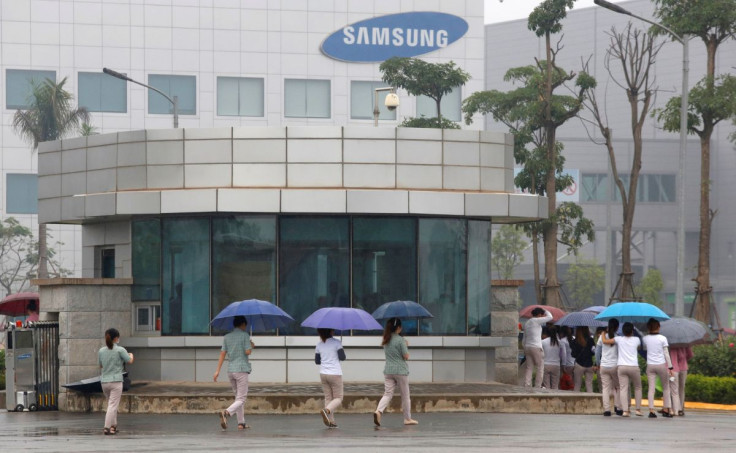Vietnam On Path To Emerge As New Asian Tiger

While the world is facing an acute shortage of semiconductors, Samsung Electronics, the world's largest chip-maker, found Vietnam the right place to manufacture semiconductor products in August.
As tech giants are eagerly looking to diversify production away from China, they are finding Vietnam an ideal place. Apple is in advanced talks to churn out Apple Watches and MacBooks in Southeast Asian country. This will be the first time a U.S.-based tech firm is producing the device outside of China.
Apple's Chinese suppliers Luxshare Precision Industry and iPhone assembler Foxconn have already completed test production of the Apple Watch and MacBook in Northern Vietnam, Reuters said.
U.S.-based semiconductor chip maker Intel has pumped $1 billion into an assembly and testing facility in Vietnam. During a visit to Vietnam in May, Intel CEO Patrick Gelsinger said Vietnam is an attractive destination for investors.
Vietnam is emerging as an alternative destination for foreign investment due to trade disruptions from lockdowns in China, the Russia-Ukraine conflict, and a lingering trade row between Beijing and Washington.
Yes, Vietnam's economy is active and ticking and has become a rising star in the global supply chain, earning kudos from the International Monetary Fund (IMF), World Bank and Asian Development Bank.
The communist-ruled nation has been posting annual economic growth of nearly 7 percent on average for the past 30 years, which international financial bodies have termed an economic miracle in the modern world.
In fact, the 1986 policy initiative -"open door and integrating global market" -- did the trick for the 97.3 million country.
Vietnam's economic growth accelerated faster than expected in the second quarter this year, which helped offset risks from the Covid-19 pandemic as well as rising oil prices.
With inflation under control and GDP growing 7.72 percent in the first half of 2022, even if the global oil prices increase again, Vietnam's economic situation in 2022 could be positive, experts pointed out.
To keep the growth momentum intact in the coming months, the State Bank of Vietnam (SBV) has set aside a fiscal stimulus worth about $15 billion to benefit the economy.
Transforming the higher education system served as a shot in the arm for Vietnam with a skilled workforce that will make the nation an upper-middle-income country by 2035 and a high-income country by 2045.
Due to an increase in the skilled workforce, the job-intensive processing and manufacturing industry attracted the maximum FDI with a total investment of nearly $8.84 billion this year.
The first six months of 2022 saw more than 83 nations trooping into Vietnam to pump in investment and, Singapore led the pack with more than $4.1 billion, accounting for 29.5 percent of the total investment capital.
Vietnam is expected to attract more FDI investment for the rest of 2022 and its exports will grow up to 16.3 percent and the trade surplus will reach $2.7 billion. Moreover, the government plans to cap the inflation rate at 4 percent in 2022.
The country is betting big on digital transformation and plans to set up a virtual financial ecosystem based on big data and open data by 2025.
The government is eager to set up a knowledge-based economy under the Socio-economic Development Strategy for 2021-2030 which stresses scientific, technological, innovative, and digitally transformative knowledge as key drivers of future economic growth.
At the same time, e-governance initiatives are taken to transform the finance sector to help it play a major role in developing a digital economy and society.
The overall aim is to speed up the digital transformation by building a sustainable, advanced and globally-integrated national financial system to maintain macro-economic stability and financial security.
























